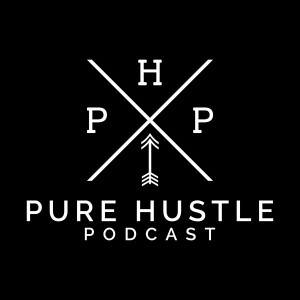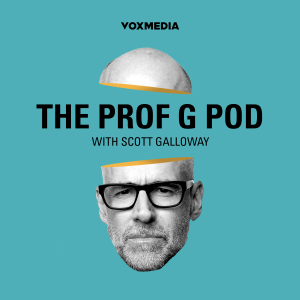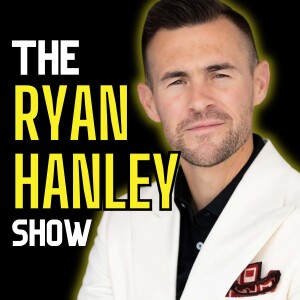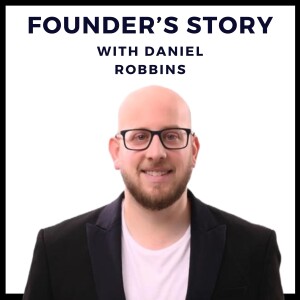

Today I'm talking with Ruby at Red Feather Farm. You can follow on Facebook as well.
www.patreon.com/atinyhomestead
Muck Boots
Calendars.Com
If you'd like to support me in growing this podcast, like, share, subscribe or leave a comment. Or just buy me a coffee
https://buymeacoffee.com/lewismaryes
00:00
You're listening to A Tiny Homestead, the podcast comprised entirely of conversations with homesteaders, cottage food producers, and crafters. I'm your host, Mary Lewis. Today I'm talking with Ruby at Red Feather Farm in Ohio. Good morning, Ruby. How are you? Good. How are you? I'm good. How's the weather in Ohio this morning? It's actually kind of chilly, but sunshiny, so I'll take it. At least it's not 100 degrees. Yeah, we're looking at 90 tomorrow or Saturday in Minnesota. Oh man. We had that over the...
00:29
past weekend and it was miserable. I'm so excited for fall. Me too. And I'm going to update everybody on the weather here and then I'll tell you why I me too on fall and then I get questions. The weather here is bright and sunny and I think it's 65 degrees and there's a light breeze, but they're saying hot and really windy all weekend, which means that a lot of the stuff we wanted to get done outside isn't going to happen because we can't do it with high wind. Oh, great.
00:58
So indoor things this weekend, which is good because we have lots of indoor things to take care of because it's end of summer season. You know how this goes, right? Oh, yes. Yeah. And ah the reason I said me too is because fall is my absolute favorite season. am so excited to get into soup season and sweater season and candle season. I'm thrilled. Oh, me too. That's my favorite. I love soup. It's so easy too.
01:25
Yeah, I was looking to see if we had any canned beans, not like we canned them, but store-bought canned beans, because I was thinking chili sounded good next week. And uh we don't have any, but we have the beans in a bag, you know, the dry beans. So I will be soaking beans at some point next week so we can make chili and cornbread, because that sounds wonderful. Oh, yes. I'm ready, ma'am.
01:50
I'm so ready. All right. So tell me about yourself, a little bit about yourself and about, um, red feather farm. Well, my name is Ruby and me and my husband started red feather farm. I'd say somewhere like 2015. And basically it started out with, we named it after we raised red Angus beef cattle and we raised boar goats. both red. And then we raised all kinds of poultry. I.
02:19
pastured them and sold them that way to customers. And we've kind of evolved a little bit and I've completely gone in a different direction. But basically now I guess you could call me a homesteader. I think most of my followers on social media know I hate that word because nobody knows what it means. But we have dove into basically producing all of our own food for our family and some other families and
02:46
Red Feather Farm is now just kind of my social media presence where I am teaching and trying to empower people that are either just waking up and trying to escape the matrix of being dependent on grocery stores or people that have been doing it a little, a long time like me. And just be encouraged and know that this is a great life. It's hard. You've got to be willing to work hard and preserving your own food and growing it is not that scary. It's not that serious and we got to quit being afraid of it.
03:16
So it's kind of, it's been kind of fun doing this social media thing and teaching other people. I've taught a lot of people how to can and all that good stuff. yeah, that's okay. Fantastic. And you're right. It's, it's not hard to preserve food or it's not scary to preserve food or any, or make soap or any of the things that we do as homesteaders, but it is hard work and it's not convenient. And the reason that
03:46
people like stores is because it's convenient. You go, you buy the thing you need. You don't have to buy the stuff to make the thing you need. Right. And then make the thing you need. so yeah, I think I'm going to define home studying as number one, a lifestyle is not necessarily having a hundred acres and 40 cows and 20 goats and 50 chickens. It's for me, it is being able to make things that I need.
04:15
out of the things that I have available to me with my own hands and my own mind. I like that. That's how I see it. I kind of, I'm having a hard time too with the homesteading versus farming versus ranching because everyone who is in whichever realm of it, you know, if you're talking to a rancher, they're a rancher, they're not a farmer. If you're talking to a farmer, they're a farmer, not a rancher. If they're, if they're a homesteader,
04:44
They're neither a farmer or a rancher. And, and really, I think that they all fall under the heading of wanting to do good in the world, to grow our own food, to take care of ourselves and be independent. That's kind of how I see it. Yeah. And I have an interesting perspective because I'm married to a farmer. we grain farm too, and live on an old dairy farm as well. So I'm kind of a weirdo that I'm a homesteader, not really a farmer, but kind of a farmer too.
05:13
And I'm kind of in the middle of all these different lives. So it's, interesting. I've always just kind of considered a farmer produces food for other people and feeds the world and homesteaders are trying to feed their community and keep it close. Maybe two. I'm not sure, but I guess you can beat a dead horse trying to define it, but. Oh, for sure. Yeah. And, and I'm to tell you a secret Ruby. We're all weirdos in our own way. Believe me, I quit trying to fit in a long time ago.
05:41
Yep. We're all beautiful in our own way. We're all smart in our own way and we're all weirdos in our own way. And I kind of love that about people. All right. So you, I know you have animals that you said you have cows and goats, right? And then on your website, it says that you have misfit animals. So what are the other animals you have? So I have a quarter horse I've had since I was 13. So he's kind of elderly now, a little bit grumpy.
06:10
And then I have a donkey that was kind of a rescue. He was not treated very well. So he's kind of crazy and I'm the only person he likes and he's not friendly at all, but he's, his name is Brad and he is very much a misfit because nobody likes him. And then I'm basically call it my misfit crew because I just kind of have some animals with some weird personalities. got just some goofballs around them. My Alpine goats that are raised for dairy.
06:37
They've got big personalities. They're basically my best friends because I spend almost all day every day with them, which is interesting to say my goats are my best friend, but here we are. uh And then I have chickens. used to raise geese, turkey and ducks too, but we kind of got out of that. I'm trying to think if I'm missing any animals at this point. Dog, cat. Yeah, we got some dogs. They're rat terrier mixes that don't do well with chasing rats. And we've got some barn cats. So.
07:07
That sounds like a home setting slash farm to me. Yeah, we got all kinds of stuff going on. So. Okay. So I was, I was looking at your Facebook page because once you guys say yes to talking to me, I have to go stalk you to find questions for you. And I saw something about canning beans, like actually in a jar. So I didn't realize that that was a thing. I mean, I knew you could store dry beans in a jar, but is it actually canning beans? Yeah.
07:36
So if you try to store dry beans for probably more than, I don't know, two years, even in mylar, it's sometimes they'll go a little bit longer. They get that chewy center and they don't store well and they never rehydrate. And I always have people telling me, oh, you can put them in a pressure cooker for three days and they'll rehydrate. No, once you have had a bean like that, you will start canning them and you will never turn back. So for me,
08:01
I got into canning beans because one, they're ready to use. I can eat them cold out of the jar if I'm feeling gross. that's kind of, I always tell people if you're learning how to can and you want a pressure can, start with dry beans. They're cheap. They're easy to come by. They're easy to grow and they're easy to slap in a jar, put in your canner and can. And they're so much better than anything you're going to buy in the store. Okay. So I'm, I'm still confused. Are they dry canned or are they wet canned? So you can.
08:30
They're like taking the dry bean and cooking it inside the jar and then it's shelf stable. Okay. I couldn't tell if it was dry or if it would use water. I didn't watch the whole thing because I was in a hurry. I'm sorry. I would dry pack green beans because they're wet and already hydrated. But any of the small dry beans like black beans, Pinto's, all that I can with water. Awesome. We're going to have to try that because we have a pressure cooker that I am deathly afraid of because I'm crazy.
08:57
But my husband is not. So when he's like, we're going to pressure cook, I'm like, you're going to pressure cook. I'm going to stand back and watch and pray nothing goes wrong. And I know it's safe. I know, I know it is, but I still have that little thing in the back of my head from my grandparents and my mom with them being very careful with their pressure canners. And I know that was a very long time ago. Yeah. I have a lot of people that are scared of pressure canners and once they run it once with me, they're like, well, that was dumb. Why was I scared of that?
09:27
And once you know all the safety features and how they work and how like you actually have to try to make these modern pressure canners break, it kind of makes you a little bit more confident. So maybe once you get a couple runs under your belt, you'll feel a little bit better about it. Yeah. I'm even afraid of our Instapot to the point that we barely ever use it. I do not like hot steam. I got burned with a, with the steam from an iron at once, cause it went on, it did the woosh and caught my hand and I had a pretty good blister for about a week.
09:56
And so it made an impression on me. So anything that is hot steam, I'm like, eh, I don't like that. But it's fine because it's all part of learning and growing up. And by God, I am almost 56. I think I can get past my fear of hot steam. It'll be okay. So, um do you grow a garden too? I do. Okay. How was that this summer?
10:20
It was good. started out going very, very well. And then Ohio got very wet. It rained off and on for like a month straight. So the weeds got out of control. So I've always been pretty transparent in my stories and on social media that your garden does not have to be picture perfect to grow food. You can wade through six foot tall amaranths and pick tomatoes. It will be okay.
10:45
For sure, yes you can. And it's been a great year for growing weeds in Minnesota as well. My husband is the gardener, I am not. I am happy to help him plant it. I am happy to help him pick out the different plants. I am not happy to be out actually gardening. I want to be doing the things in the house with the food that gets grown. And I'm very honest about that. But he just didn't.
11:13
keep up on the weeds because they were coming so fast and furious this year. And I'm kind of glad that he wasn't able to because for some reason we had basil that was growing and it was surrounded by weeds and he was doing a tour of the garden a couple weeks ago. He came in and he said, I just pulled a whole bunch of weeds around the basil that I didn't even remember I planted. And I said, okay. He said, it's gorgeous. He said, we will be drying basil in two weeks.
11:41
We've been drying basil for the last two nights and it smells so incredible. Oh, I can imagine. I love basil. I thought it was done. I thought it was over because we had a couple of cold nights, I don't know, month ago. And once they get the little black spots on the leaves, they're not very good anymore. They don't taste right. And that's from the cold. So I was very excited to know that we had a second chance at drying basil. Yeah, that's awesome. Yes. And dried basil from your garden is the best thing.
12:11
for spaghetti sauce in January I have ever tasted. I will agree. So there are definitely some perks to growing your own stuff and that's one of them. Um, did I see that you make soap too? Yes, I do. Okay. And do you use your goat milk for the soap? Yep. Okay. Normally use tallow and lard from our cattle that we raise and then my parents raised pigs. So I usually use one of those.
12:40
So everything that is in my soap is from our farm. So that's pretty cool. I love that. That's amazing. And do you sell it? I used to. I dabbled in it, but it just, I didn't enjoy that part of it. Okay. So do you sell anything from the farm or is it pretty much just for you and you share it with the community? We do custom beef with our beef cattle. So we will deliver a beef to the butcher and then
13:08
Our customers get to pick all the cuts they want and we charge them per pound by the hanging weight. um We also, I do herd shares with my dairy goat herd. So I have families that come and get milk from their share of the herd that way too. But other than that, public facing and all that stuff is not our jam. We do not enjoy selling things that way. Okay, cool. Not everybody has to, I promise. uh
13:35
So I was, when I was looking at your Facebook page, I saw the thing about the herd share and we don't really have that here in Minnesota. I mean, I think some people do it, but it's not all that common because here we can sell goat milk or cow milk as long as the person comes to the farm where the cow is and brings their own containers. So is that a thing in Ohio or is the herd share a way to get around being able to sell the milk? So in Ohio, raw milk is illegal. Okay.
14:05
And you can use a loophole that says you're selling it as milk only. like it's only for their dogs or their cats. And then you can do whatever you want with it, but I don't like that. Yeah. So I worked with, um, a lawyer and like a defense fund and they helped me form this herd share and my contract and all the legalities. So because basically in Ohio, if it looks like you are selling any kind of milk, you are up a creek.
14:34
And so the herd shares, the easiest way to get around that because her chairs are legal in Ohio. And I know there is a couple of lawmakers trying to make raw milk illegal in Ohio, but I'm not excited about it because they're going to make producers get a license. I don't enjoy the government having any type of control on what I do. So that would open you up to being inspected and having people look at your farm and that stuff. And I'm just not a fan.
15:05
So right now we just do the herd shares and it's pretty easy. I have some really great families that have joined in that I get to see every week during their milk pickups and it's a lot of fun. So we'll just do it that way. Okay. So I have a couple of questions. I don't know how to ask the question right. Say I want, I don't live near you, but say I live near you and I wanted to be part of the herd share. How does that work? What would I have to do?
15:32
So people normally hear from me from other members in my herd share. They see it online and they just ask about the herd share. So then I can give them information on what it entails, how much milk you will possibly get every week because it's on a share basis and I can't really guarantee the exact amount because then that would be selling milk. Um, so basically I can figure if you own like one share of a goat, you have to
16:01
purchase in and buy that share of the goat and what it's worth. And then you pay a monthly boarding fee for me to take care of your share of that goat. And I make sure I explain that to people. And that's when they show interest and want to join, we go through that. They pay the fees and then every week they're entitled to whatever fraction of milk that my herd produces that week. If that makes sense.
16:26
Yep, that makes absolute sense. And I just asked because I sort of know how a herd share works, but my listeners might not. So I figured you'd be better at explaining it than I would be. And then um do the people that sign up to be part of the herd share, do they need to sign a waiver or anything saying that they understand that they are doing something that could possibly maybe ever hurt them? You know, because that's part of the thing.
16:54
My contract basically just says that you agree that you're consuming raw milk. This is how I handle it. And I make sure when I onboard a family, they come with me during milking time. And that's probably not everybody does that, but I want them to see how I handle the milk, how I milk the animals and how I clean my milking equipment, whether I'm hand milking or using a milk machine. I think that is very, very, very important. So
17:24
My brain just shut down for a second. Mom life. Yeah. Um, I asked, I asked if they needed to sign a waiver or anything. And it basically just says, I, I'm trying to think of how it's worded. It's mostly just saying, I'm drinking raw milk. I understand that there are risks and benefits to it. And I am assuming all of that. And I make sure that they understand they are not buying milk for me. They are part of a herd share and they own a share of my herd.
17:53
I really beat that into people's heads because I'm not selling milk. We're not going down that road. But I don't agree with the whole raw milk's gonna unalive you and make you sick. I think it's just how milk is handled, whether it be raw or pasteurized, that can make you sick. And I want people to understand that in that process. Oh, absolutely. Raw milk will not unalive you. It is okay. And it is about the practices of the farmer.
18:23
and the person who takes care of the animal and how they clean the udder and how they do the milking. That's where it gets dicey if someone isn't doing it correctly or safely. I love that you have people come see how you do it because full transparency is the best way to go on this stuff. I'm a big education person. mean, you saw my Facebook. That's basically what I do. Especially with raw milk, you got to be smart.
18:52
Because there's, I know there's some conspiracy in that stuff behind why raw milk is illegal, but there's also a reason why raw milk can be dangerous. And in this day and age, everybody's doing it, especially here in Ohio. So I believe you really need to know your farmer. You need to know what they're doing and you need to make sure you're okay with it. Because some people you get the non-toxic groups and that, that we can't use bleach. We don't want to use all this stuff. But if you're using a milk machine and you're not using bleach or a dairy.
19:22
cleaner and acid to get rid of that milk stone, you can make people very, very sick. So I want people to understand, even if you're not going to join my herd share, I want you to know how to get raw milk and I want you to be safe about it. Yeah, for sure. um I'm going to switch it over to eggs. We sell eggs from our chicken butts. Eggs come from chicken butts, people. They really do. um And we try to sell the nicest, cleanest eggs in our farm stand in a dozen.
19:51
you know, container. And sometimes the eggs still have some chicken poop on them. And we have a little card that we put in there that says how to handle the eggs, how to wash the eggs, that you really should wash the eggs before you use them. And it explains about the bloom and why we don't wash them before people buy them. And I would feel real bad if we didn't put that card in there for people to know how to handle those eggs. Because if you wash the bloom off of an egg,
20:21
you have to put them in your refrigerator. If you don't wash the bloom off an egg, they can be on your counter for a couple of weeks and be fine. And so it's the same thing, anything to do with dairy, eggs, or meat. There are things you do that keep you safe and make it a pleasurable experience to consume the thing that you bought. So it's fine. Nothing will hurt you.
20:47
from an animal, it's how the product is handled after it came from the animal that's the problem. If people aren't doing it right. Right. So I think we've beat that horse far enough. I think we're probably good. ah Okay. So how many kids do you have? I have two. Two. Are they young? Yep. Seven and three. Okay. Is the seven year old involved in the stuff that you're doing? Yes. He helps me with chores every day. He's actually
21:17
Very, very helpful in my three year old gathers the eggs and feeds the chickens now. And do they love it? They absolutely do. Good. Good. The answer is usually, uh, not so much or yes, they do. I love the yes, they do answer because the not so much I'm like, Oh no, because we need, we need, I can't put enough stress on that word. We need young people to come up into this and be ready to go.
21:47
in 20 years because the way things are going, it's getting scary. And I tell my kids now, even if you don't want to do it, do it because it builds character and you'll want to do it when you're an adult. Ask me. Yeah. Part of the reason that I got into this lifestyle is because my mom and dad hunted deer. They canned, they grew a garden every year. My dad is 84. He just put his garden to bed this past weekend.
22:18
Just like he was not going to do a garden this year. And my mom said to me on the phone, she said, I think I have him talking to doing a garden this year. And I took a big deep breath and I said, do you, do you really, is it okay? Is he up for this? And she said, I think so. She said, he would have really told me no if he didn't want to.
22:42
And I said, okay, because you know, my dad's 84 and he acts like he's 50, but he is 84 years old. That is not a young man. And my thought in my head, which I didn't say out loud to my mom, because I didn't want her feelings was if he dies putting in a garden, I'm going to be real mad. But he would be so happy. I'm sure that's exactly what he wants to be doing.
23:05
And so they got a bunch of really lovely beets and tomatoes and they have like four or five pumpkins that are ready to come in. And they're both really excited about this. And it's a small garden. It's maybe 40 by 50 feet, maybe. And I'm sure that come January, when I talk to my dad on the phone, he'll be like, I don't think I'm going to put a garden in this year. And I bet you he'll be out there in May next year or June putting in a garden.
23:36
I love that. Yep. And my mom goes out and helps him and weeds and does all the things and she's 78. I'm sorry. No, she's 79. So, so yeah, it's just it's in your blood and it's in my blood. And I absolutely love the fact that I learned last week that roasted beets are actually yummy. I hate beets. I hate raw beets. They taste like dirt to me. Oh, come on.
24:05
Oh, can't do it. But roasted, all the natural sugars come out and they're really yummy. They're almost like candy. Now you need some goat cheese to put with it. That is my favorite meal. Roasted beets and goat cheese. Really? Mm-hmm. Huh. I'll have to try it. But uh yeah, no, I've always hated beets and my mom used to make pickled beets, like pickles only with beets. she did the sweet pickle beets and those were okay. I still didn't love them.
24:32
And then my son happened to pick up some roasting vegetables in a bag from the freezer section at the store and there were chopped up beets in it. And I could smell it cooking and I was like, what smells so sweet? And I said, are the carrots in there? And he was like, no. I said, sweet potato? He's like, no. I said, what is it? And I came out and I saw the purple and I said, oh, it's a beet. And I took one just on the off chance that it tasted the way it smelled.
25:00
And I was like, oh, we have beets in the garden. I know exactly what's going to happen with those. We're going to roast them all this winter.
25:08
I love it. I could eat beets every day. Yeah, I had no idea. I felt like such a doofus. If I had known, I would have been eating beets for last 25 years. Got some time to make up for, Yes, and they're really good for you. Oh, yes. Not that you could have told me to eat one a month ago because I was like, nah, I don't want beets. Yuck. So you can teach an old dog new tricks apparently. Yeah, there you go.
25:37
So, um, okay. So are you guys getting things wrapped up for the fall at this point? Well, my garden's wrapped up, so I'm wrapped up canning and we're gearing up for harvest now with corn and soybeans. it doesn't really calm down for me until like January. Oh, wow. Okay. Yeah, but it's okay. I don't mind it. I love this life that God has blessed me with. So I'm gonna trade it for the world.
26:02
Well, sure, but it's nice to get a little bit of rest before you have to hit it hard again. Oh, definitely. And I do get to sit down every once in a while, but I'm kind of one of those hyperactive, energetic people that always wants to be moving and busy anyway. So it's kind of, it's good for me. It is and keep doing it because if you stop for very long, you will stay stopped and that's not good. Yeah, exactly.
26:28
With the corn is it field corn or it's not sweet corn. It's too late for sweet corn, right? and is that just for your animals or is that do you sell that off as part of the farm? We sell that too, but we do feed our beef cattle with it as well. We grassy and grain fed Okay, and I'm gonna ask you a crazy question because I am curious and I will ask uh
26:53
Do you guys ever do like, you know when you drive by a cornfield and it's got the little signs that have a number on it and basically it's a test crop? Do you guys do that at all? I think they've done it in past years, like a little plot for people if they've asked, but we don't do it a lot now. Okay. I was curious because the corn that the people that own the property around our property, they planted this year.
27:21
It is at least nine feet tall. Oh yeah. It's gotten really tall in the last few years. Yeah. And this is the first time, I mean, they've been growing it. This is the third summer, I think it was soybeans and it's never been this tall. mean, it looks gargantuan. And I said to my husband, said, I wonder if it's a test variety or something. And he said, I don't think so. He said, I think the weather has just been incredibly good here this year for corn.
27:49
He said, because all the fields in the area are tall this year. It is over here too, but we got really dry starting in, I think the end of July and it didn't rain until like last week. So our corn's tall, but it get a little thirsty there for a minute. Yeah. And the ears on this corn are gargantuan. I've never, I've never seen field corn ears this big. I'm like, wow, they're going to be really happy with their crop when they get it in. Yeah.
28:18
Now we just need corn prices to go up. We need a lot of things. I almost wish that I could talk politics because I have so many things on my brain right now. But we don't talk politics on the podcast because it just hurts people's feelings and I can't do it. So I just keep my fingers crossed that people like you and people like me and people like all the people I've talked to over the last two years keep doing the good things they're doing because I keep saying that positive energy
28:46
does counteract negative energy. So keep doing the good things, please. uh Where can people find you, Ruby? They can find me on Facebook and Instagram or my website. Okay, what's the address? Your website is what? What's the address? Redfeatherfarmohio.com. Okay, and you just wrote Feather Farm on Instagram and Facebook? I think I'm Redfeather Farm Ohio on Instagram because there was
29:15
I think there's a hatchery somewhere that's Red Feather Farm and there's somebody out in it's either Wyoming or Wisconsin that I keep getting invited to speak at something and I'm the wrong Red Feather Farm. So I added Ohio to things so people would know I'm the wrong one. Okay, cool. And as always, people can find me at atinyhomesteadpodcast.com and go check out my Patreon. It's patreon.com slash atinyhomestead. Ruby.
29:45
Thank you for sharing everything. That was so fun. Yes, thanks for having me. Have a great day. You too.
More Episodes
All Episodes>>Create Your Podcast In Minutes
- Full-featured podcast site
- Unlimited storage and bandwidth
- Comprehensive podcast stats
- Distribute to Apple Podcasts, Spotify, and more
- Make money with your podcast











